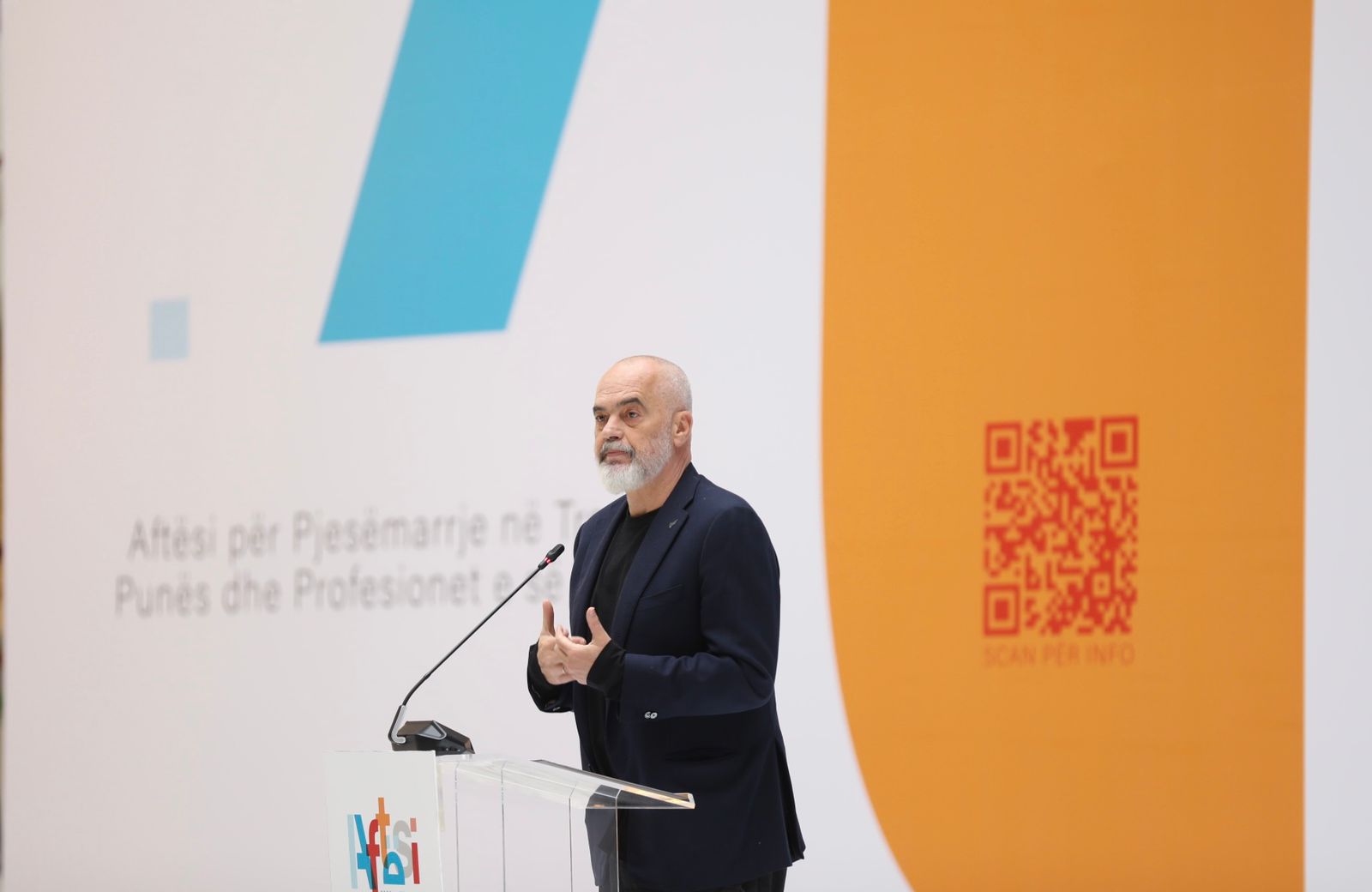Minister Blendi Gonxhja’s Speech at the II Conference of Education and Vocational Training “Ability to participate in the labor market and future professions”
Dear Prime Minister,
Dear Ambassadors,
Dear participants
As a start, I would like to share with you some facts about education and vocational training.
The optimization process involved 10 vocational training institutions, from which 4 optimized vocational training institutions were created through reorganization.
As a result, public vocational education is provided by 29 vocational schools and 10 vocational training centers throughout the country.
In the academic year 2023-2024, 14,700 students will be enrolled in public secondary vocational education, according to INSTAT data published at the end of April 2024.
4,709 students were enrolled for the first time in vocational education, 11% more than a year ago, at a time when the number of students graduating from basic education is decreasing.
The most popular VET programs for 2023-2024 are: hospitality and tourism, transport services and information and communication technology (ICT).
8 VET providers also offer post-secondary vocational qualifications (fashion design, car service diagnostics and management, real estate broker).
60% of students who graduated in 2022 were employed within the first year after graduation and 63.4% of them work in their field of study.
80% of students enrolled in professional training completed professional internships in 2551 private and public companies.
2 Sectoral Committees in two priority sectors “Information and Communication Technology” and “Tourism and Hospitality” have been advising and informing for two years on the adaptation of education and training programs to the needs and dynamics of these two sectors.
While 71 vocational training courses were offered by public vocational training centers in 2023, in which over 15,000 trainees were registered, of which over 10,000 were unemployed job seekers.
During 2023, through the National Employment and Skills Agency, the coding program was implemented, which aims to equip job seekers with the necessary skills in priority sectors for economic development. The priority has been the provision of IT courses such as: coding, programming, cybersecurity, robotics, etc. against budgetary support for job seekers in the amount of 50% of the value and for unemployed job seekers in the amount of 100% of the value.
According to the National Plan for its implementation, the Youth Guarantee was launched in October last year and its pilot implementation started in three municipalities: Tirana, Shkodra and Vlora. Within the pilot phase, the implementation of the Workplace Learning Program has started in all three municipalities as part of the Youth Guarantee.
In all these objectives and results, we have had the unstinting support of our development partners:
– The European Union, through the pre-accession instruments, IPA II under the “EU for Inclusion” program and IPA III “Operational Program for the Youth Guarantee”, continues to provide comprehensive support for employment and skills development policies.
– I would also like to thank the Swiss Government and the Swiss Agency for Development and Cooperation (SDC) for their sustained commitment to support the education and training sector, which is currently implementing three long-term projects (“Development of Skills for Employment” project implemented by UNDP, “Skills for Work” project implemented by Sëisscontact, “RisiAlbania” project implemented by Helvetas) with a clear focus on the development of the ecosystem of skills for employment.
– The German government supports economic development and vocational training through the PROSEED program.
– The German Bank for Reconstruction (KfW) is also an important partner in improving and modernizing education and training infrastructure.
– Another joint initiative is the Regional Challenge Fund, in which more than half of the public providers of vocational education and training participate in partnership with private companies.
I would not like to leave without mentioning other partners, such as the French Government, the British Government, the Swedish Government, the Italian Cooperation, the Austrian Development Cooperation, who have contributed and continue to contribute in the field of employment and skills development.
Despite all the progress that has been made, at this conference, one year after we entered a new cycle of employment and skills development policies, I believe that we are all facing challenges that now require concrete solutions to bring the education and training system to the forefront of changes and transitions in the economy and society, to make partnership with the private sector a reality in the delivery of programs where business plays the main role.
With the conviction that during these two days we will find space to discuss these issues, I thank you for your attention and wish you good work.



